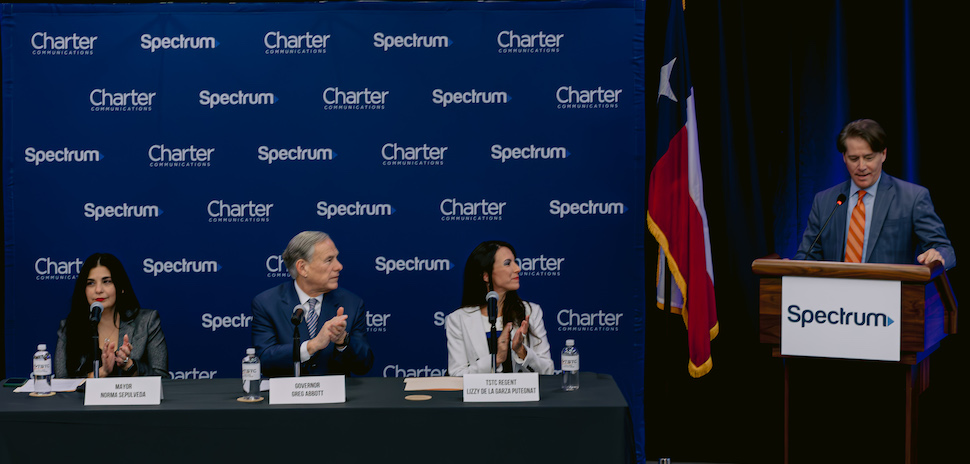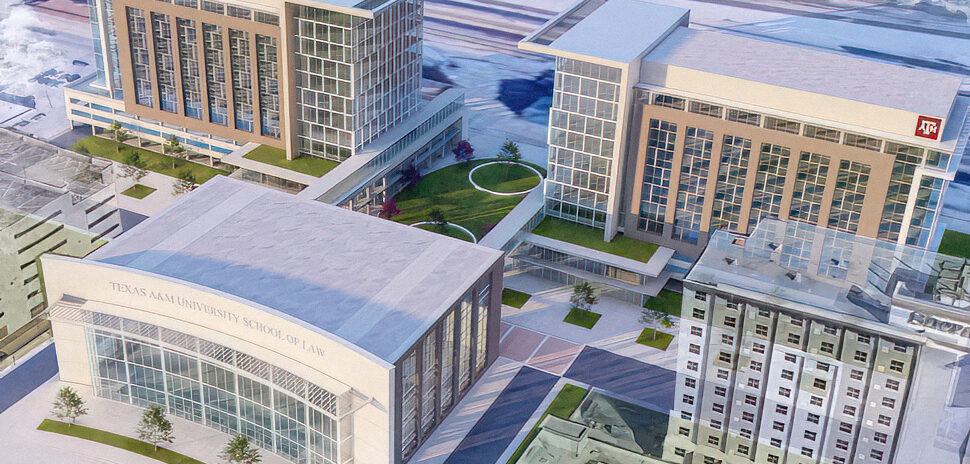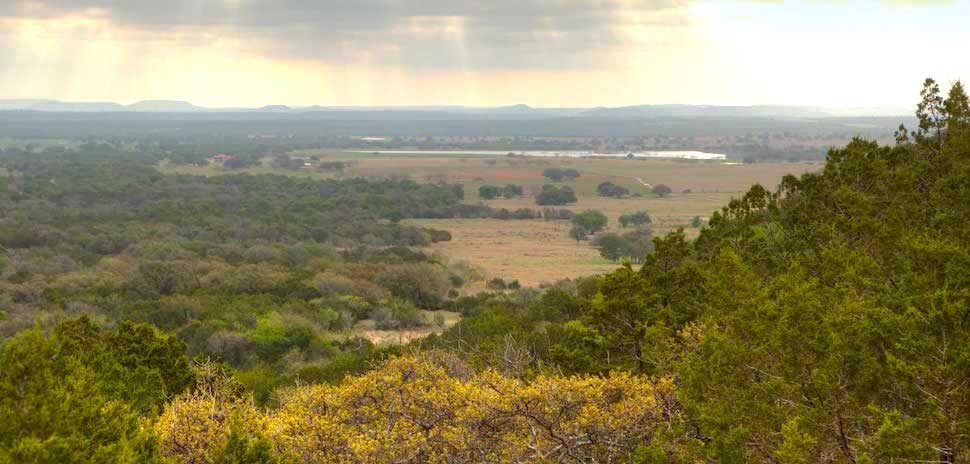Charter Communications—which serves more than 32 million customers in 41 states through its Spectrum brand—announced Thursday that it’s investing more than $1.3 billion in Texas through its companywide network evolution project and broadband expansion commitments.
The Stamford, Connecticut-based company said the investment will enable the delivery of symmetrical and multi-gigabit speeds across the state, while also funding rural broadband expansion for currently unserved and underserved homes and small businesses in Texas.
Charter’s announcement was part of an event at Texas State Technical College in Harlingen that was attended by Gov. Greg Abbott and local leaders, the company said.
“Texas is poised to bring broadband to every corner of the state, but we can’t do that without our industry partners,” Abbott said in a statement. “Today’s $1.3 billion investment in infrastructure and technology from Charter will help bring broadband access to more Texans.”
“With this new investment, Texans who live across the big and beautiful reaches of our great state will have the same internet access that those in big cities do,” Abbott added. “That’s a critical tool to keep our economy booming, children learning, and families connected to the best healthcare facilities in the world. I thank Charter for investing in the future of Texas, and for all the work they do right here in the Rio Grande Valley.”
Charter said this is a 100% company investment. The company is investing $700 million in a network evolution project in the state to deliver symmetrical and multi-gigabit internet speeds across the company’s footprint, which is expected to be substantially complete across the state by the end of 2025.
This expansion also will give Charter the ability to provide 25, 50 or even 100 Gbps speeds for high-bandwidth users with fiber on demand across the vast majority of its 41-state network.
No. 1 rural internet provider in the U.S.
Charter said it is the No. 1 rural internet provider in the nation and also is expanding its fiber-optic network to bring broadband to previously unserved and underserved areas in more than 50 Texas counties.
A nearly $620 million investment, offset by nearly $200 million in federal, state and local grants, will bring symmetrical and multi-gigabit broadband to more than 140,000 unserved and underserved homes and small businesses, Charter said. Since the beginning of the company’s rural construction initiative in Texas in 2021, Charter said it has built nearly 5,000 miles and activated more than 50,000 locations through these public-private partnerships.
Plans for continued expansion to ‘bridge the digital divide’
Charter said that it plans to make significant additional investment to bridge the digital divide in the Lone Star State, with support from subsidies allocated for rural broadband expansion in Texas.
The company said that through the work of state leaders, there is $1.5 billion in Texas state funds dedicated to this effort. Charter said that State Comptroller Glenn Hegar has statewide authority to manage and distribute broadband deployment funds, including more than $500 million from the federal American Rescue Plan Act, and $3.3 billion that Texas is scheduled to receive from the federal Infrastructure Investment and Jobs Act’s Broadband Equity, Access and Deployment program (BEAD).
Central to the current expansion is the company’s participation in the Federal Communications Commission’s Rural Digital Opportunity Fund (RDOF).
Charter said it will bring high-speed internet service to an estimated 133,000 homes and small businesses through its RDOF buildout in Texas and is participating in public-private partnerships with county- and city-funded programs that will add nearly 9,000 additional homes and small businesses to its network.
“Charter’s investments in Texas, with vital public funding through RDOF and additional local broadband grant programs, are providing the critical infrastructure so many families and small businesses across the state need to compete in the digital world,” Adam Falk, SVP of state government affairs at Charter, which operates the Spectrum brand of connectivity products and services, said in a statement.
“Through this multiyear investment in our network, we will ensure Texans in communities across the entire state — from the Dallas-Fort Worth metroplex to Austin and San Antonio, to El Paso in West Texas and Beaumont in the East, and here in the Rio Grande Valley — all receive even faster broadband speeds, with the network security and reliability they have come to reply upon,” Falk said.
Charter said it continues to expand its network to additional unserved areas through 100% company-funded buildouts. Since 2018, for example, it has invested nearly $150 million to connect more than 102,000 home and small businesses in the Rio Grande Valley, constructing more than 3,300 additional network miles.
Charter said it serves more than 3.5 million customers across nearly 500 Texas communities, and the state is home to more than 15,500 Charter employees, the most of any state.
![]()
Get on the list.
Dallas Innovates, every day.
Sign up to keep your eye on what’s new and next in Dallas-Fort Worth, every day.















![Copper Breaks State Park is an international dark sky park located northwest of Dallas-Fort Worth in Quanah, Texas. [Image: AmitabhClickz/Shutterstock]](https://s24806.pcdn.co/wp-content/uploads/2023/02/Copper-Breaks-State-Park_970_Shutterstock_Dark-Sky-Park-shutterstock_550258936-970x464.jpg)


















































